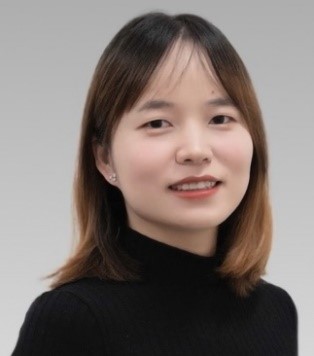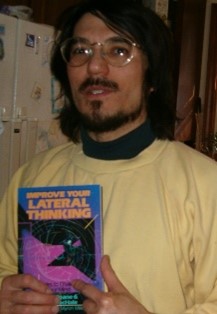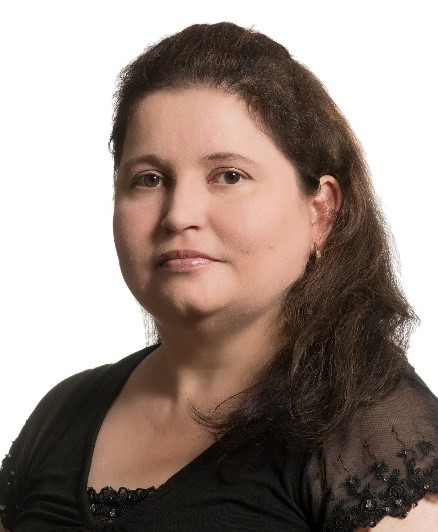News
Meet a CIS Member: Fangfang Zhang

Meet: Fangfang Zhang, Vice Chair of CIS Task Force on Evolutionary Scheduling and Combinatorial Optimisation
What is your title, and place of work? (or Technical Field of Research)?
I am a lecturer with the Centre for Data Science and Artificial Intelligence & School of Engineering and Computer Science, Victoria University of Wellington (VUW), Wellington, New Zealand.
How long have you been a member of CIS and what was the reason you chose to join IEEE CIS?
Starting from 2019, I have been a CIS member for over five years. Since I started my PhD, I have published a number of papers at CIS sponsored conferences, including CEC and SSCI. My initial motivation for joining CIS is to reduce the cost of attending conferences. After several years with IEEE CIS, I found that our CIS community has been providing lots of opportunities for young researchers for self-developments such as IEEE Task Forces and travel grant support for attending conferences. I have organised a number of tutorials and special sessions at CEC and SSCI.
What Computational Intelligence Society committee do you serve?
I am the Secretary of the IEEE New Zealand Central Section, and a vice chair of the IEEE CIS Task Force on Evolutionary Scheduling and Combinatorial Optimisation. I am an associate editor of the journals of Expert Systems With Applications and Swarm and Evolutionary Computation. I was the Treasurer of Young Professional Affinity Group, and the Chair of the Student Branch at VUW for the IEEE New Zealand Central Section.
What have you learned from your experience and how has it helped you professionally?
I have learned a lot of academic skills such as organising and reporting activities, and communicating with international researchers in our CIS community. First, it helps me have a better understanding of how the CIS works. Second, it provides lots of opportunities for me to build connections with experts from different countries, which broadens my horizons. Third, it improves my leadership skills so that I am able to take on more important roles in the future.
What has been the most fun/rewarding thing about being a volunteer for the IEEE Computational Intelligence Society? What have you enjoyed the most?
The most rewarding thing for me is the professional development by engaging in volunteer work such as organizing events, reviewing papers, or leading initiatives. These activities help me develop leadership, communication, and organisational skills that are valuable in both personal and professional settings.
I enjoy the networking with CIS the most. Volunteering allows people in CIS to connect with like-minded professionals, experts, and scholars in the field of computational intelligence. These connections can lead to collaborations, mentorship opportunities, and lasting friendships.
Tell us something about you that we don't know.
I am the Secretary of Women in Engineering for IEEE New Zealand Central Section. I am also the Diversity Chair of the AI Researchers Association in New Zealand. In addition, I am the project coordinator for our large MBIE SSIF program on Data Science for Aquaculture, and helping with different matters such as finance, industrial connections, workshop organisation, recruitment, and project reporting. I have been applying my AI skills to primary industries such as salmon health prediction and medical emergency dispatch. I hope I can help CIS by playing more important roles as a female.
Remembering Jeffrey Horn (1963-2024)

It is with considerable sadness that we inform the genetic and evolutionary computation (GEC) community that Jeffrey Horn, (61) passed away on February 5, 2024 at Negaunee, Michigan. Jeff received his undergraduate degree in Computer Science from Cornell University in 1985 and his Masters and Doctoral degrees from the University of Illinois at Urbana-Champaign in Computer Science in 1997. At Illinois, he was an early member of the Illinois Genetic Algorithms Laboratory (IlliGAL). At the direction of Prof. David E. Goldberg, IlliGAL’s researchers addressed fundamental and pragmatic issues related to the working of GEC algorithms, which helped shape many leading GEC researchers of repute today. After completing his PhD, Jeff joined the Department of Mathematics and Computer Science at Northern Michigan University in 1996. Students of NMU remember him as a caring teacher and friend.
He is remembered for his research in genetic algorithms specifically and evolutionary computation at large, focusing in evolutionary multi-objective optimization (EMO), understanding problem difficulty, and the evolution of cooperative co-solutions. His 1994 proposal of an EMO algorithm -- Niched Pareto genetic algorithm (NPGA) -- received more than 4,000 Google Scholar citations and is one of the three pioneering EMO algorithms which propelled the EMO field forward. His subsequent applications of NPGA to ground water remediation system design was one of the early practical applications of EMO algorithms. Besides his passion for EMO algorithm development and applications, he was deeply interested in understanding how to form stable niches within evolving populations to find multiple optimal solutions simultaneously. For this purpose, he introduced multi-modal deceptive and long path problems, which enabled researchers to have a better insight on the role of populations in evolutionary search algorithms. At NMU, he continued his quest for foundational aspects of GEC algorithms and extended his research to evolutionary robotics, artificial life, and applications in shape nesting problems and games.
He is survived by his wife, Gabriele Burkhard, and his children Thorin and Ellissa.
On March 4, 2024, Goldberg and Deb organized a remembrance event on zoom, which was attended by many of his lab-mates from Illinois, GEC researchers from across the globe, his recent students and colleagues from NMU, and his family members. His departure was sudden and unexpected. He will be deeply missed, but the moments he shared with us and the contributions he made for the GEC community, will always guide us, inspire us, and stay vivid within us.
Kalyanmoy Deb and David E. Goldberg
Meet IEEE CIS Member Mardé Helbig

Meet: Mardé Helbig, Chair of the IEEE CIS Distinguished Lecturers Program sub-committee.
What is your title, and place of work? (or Technical Field of Research)?
I am the Deputy Director of the Griffith Sciences Partnership Office (GSPO) and Senior Lecturer within the School of ICT at Griffith University, Australia. As Deputy Director of the GSPO I facilitate engagement with industry for the whole Sciences group for both academic staff and students, and for both research and teaching activities. My research focuses on using computational intelligence algorithms to solve optimisation problems with multiple goals/objectives, where at least two of the goals are in conflict with one another and the objectives and/or constraints are dynamic. I am also interested in visualising and better understanding the search process of the algorithms and applying these algorithms to real-world problems.
How long have you been a member of CIS and what was the reason you chose to join IEEE CIS?
I have been a member of IEEE CIS for 17 years, joining during my PhD at the recommendation of my supervisor since it provided discount for the IEEE CIS conferences.
What Computational Intelligence Society committee do you serve?
I am currently serving on the Members Activities Committee (MAC) as the chair of the Distinguished Lecturers Program (DLP) sub-committee, and as a member of the Strategy sub-committee. I have previously served as the chair of the Webinars and the Chapters sub-committees of MAC, as a member of the Women in CI sub-committee of MAC, vice-chair of the Mentoring sub-committee of the Technical Activities Committee and as the chair of the South African IEEE CIS Chapter.
What have you learned from your experience and how has it helped you professionally?
I love meeting different people from the Society through serving on these committees. I have learned more about the various activities of the Society, and just how many activities are happening behind the scenes. It has helped me to build my professional network and to grow my leadership skills.
What has been the most fun/rewarding thing about being a volunteer for the IEEE Computational Intelligence Society? What have you enjoyed the most?
The most fun thing is being face-to-face with a wonderful group of people at the committee meetings. The most rewarding thing for me is giving back to Society members and helping the Society to achieve its goals. I enjoy seeing the impact it has – even if it helps one other person in the Society, I am happy!
Tell us something about you that we don't know.
I am a huge fan of rugby (rugby union) and cricket, love scuba diving and write poetry.